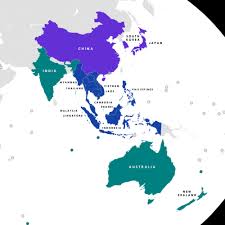Understanding the Importance of ASEAN Countries

Introduction: The Significance of ASEAN Countries
The Association of Southeast Asian Nations (ASEAN) is a geopolitical and economic organization that comprises ten member countries: Indonesia, Malaysia, the Philippines, Singapore, Thailand, Brunei, Vietnam, Laos, Myanmar, and Cambodia. Established in 1967, ASEAN has become a cornerstone for regional cooperation and economic growth in Southeast Asia. Its importance lies in promoting peace, stability, and economic integration among member nations, making it a key player in the global arena.
Recent Developments and Collaborations
In the wake of the COVID-19 pandemic, ASEAN countries have showcased their resilience through collective efforts to recover economically. The ASEAN Economic Community (AEC) has been pivotal in enabling free movement of goods, services, and investments, which is essential for regional recovery. Recently, ASEAN leaders held a summit to address issues such as supply chain disruptions and vaccination rollouts, emphasizing the need for stronger collaboration in public health and trade.
Moreover, ASEAN’s engagement with external partners has intensified, evidenced by the recent signing of the Regional Comprehensive Economic Partnership (RCEP), which includes ASEAN members along with China, Japan, South Korea, Australia, and New Zealand. This landmark agreement aims to create the world’s largest free-trade area, enhancing economic ties and providing a significant boost to recovery efforts post-pandemic.
Social and Cultural Developments
Beyond economics, ASEAN countries are united by cultural ties and shared history, which foster mutual understanding. Initiatives such as the ASEAN Cultural Year promote cultural exchanges, allowing member countries to celebrate their diversity and heritage. Events showcasing traditional dances, cuisine, and arts are increasingly held to deepen people-to-people relations within the region.
Conclusion: Looking Ahead for ASEAN Countries
The future of ASEAN countries hinges on continued cooperation and commitment to mutual interests. As challenges such as climate change and geopolitical tensions arise, ASEAN stands poised to leverage its unity to tackle these issues collectively. The bloc’s emphasis on inclusive growth and sustainable development will be crucial in ensuring that all member nations benefit from regional progress. For readers and observers, understanding the dynamics of ASEAN countries is not only essential for grasping the current geopolitical landscape but also for anticipating future trends in global cooperation and economic development.









